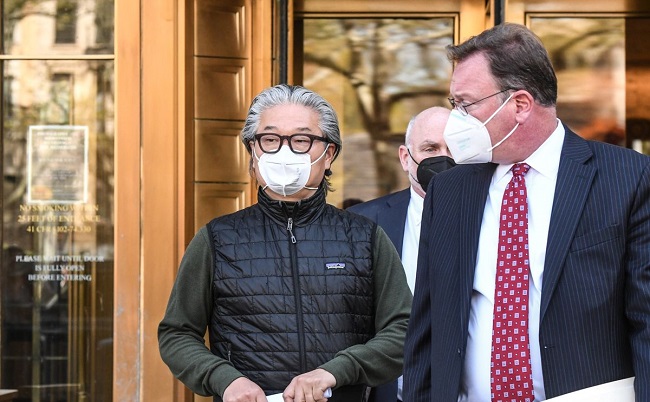On Wednesday morning, US prosecutors charged Archegos Capital Management’s founder and CFO with fraud, setting the stage for one of the largest Wall Street white-collar trials in years.
Both Patrick Halligan, a former top lieutenant at Archegos, and Bill Hwang, the company’s founder and current CEO, were arrested at their homes and are scheduled to appear in court later today.

The investment firm founded by one family collapsed last year, resulting in billions in losses for banks, investors, and the firm’s own employees.
In a federal indictment, Hwang was accused of using Archegos as a “instrument of market manipulation and fraud” with “far-reaching ramifications for other participants in the United States securities markets,” among other charges (among 11 total).
According to a statement released by US attorney for the Southern District of New York Damian Williams, the value of Archegos’ interests increased from $1.5 billion to $35 billion in just one year as a result of the alleged criminal activity.
Read Also:
Archegos used debt financing to bolster its stock holdings. Hwang’s use of derivative securities with restricted disclosure requirements hid the magnitude of Archegos’ market holdings from the general public. According to US officials, this meant that shareholders were kept in the dark about the breadth of Archegos’ investments in a handful of companies.
Trouble arose for the firm when its big assets in Baidu, China’s internet search powerhouse, and FarFetch, an online retailer of luxury goods, began to decline. However, Archegos’ doom was sealed by its huge ownership in media conglomerate ViacomCBS, which owns both Paramount Pictures and the CBS television studio.
At a press conference, Williams stated, “These defendants conducted this scam in the shadows.”
Paramount, then known as ViacomCBS, attempted to cash in on the company’s increasing stock price by issuing $2.6 billion in new shares in March of last year. Due to the lack of interest from investors, the stock price plummeted. The banks that had extended loans to Archegos were forced to call them in and sell their shares as the company’s losses grew.
Credit Suisse lost $5 billion due to the losses. Morgan Stanley, Nomura, and UBS were just a few of the other major financial institutions that took significant hits.
Separate civil charges were filed by the Securities and Exchange Commission against Hwang and Halligan (SEC).
According to Gurbir Grewal, director of the SEC’s Division of Enforcement, “we allege that Hwang and Archegos propped up a $36bn house of cards by engaging in a constant cycle of manipulative trading, lying to banks to obtain additional capacity, and then using that capacity to engage in still more manipulative trading.”
However, as Grewal puts it, “the house of cards could only be sustained if that cycle of deceptive trading, lies, and buying power continued uninterrupted.” When Archegos’ buying power was depleted and stock prices fell, the entire structure allegedly collapsed, leaving Archegos’ counterparties with billions in trading losses.
Read Also:
Last Words
The government’s unexpected detention of Hwang, while “substantive conversations regarding the facts and law were proceeding between Mr Hwang’s counsel and the government,” according to Gibbons, is “much more disturbing.” He stated that Hwang was readily available and had cooperated fully with the government’s probe.

















